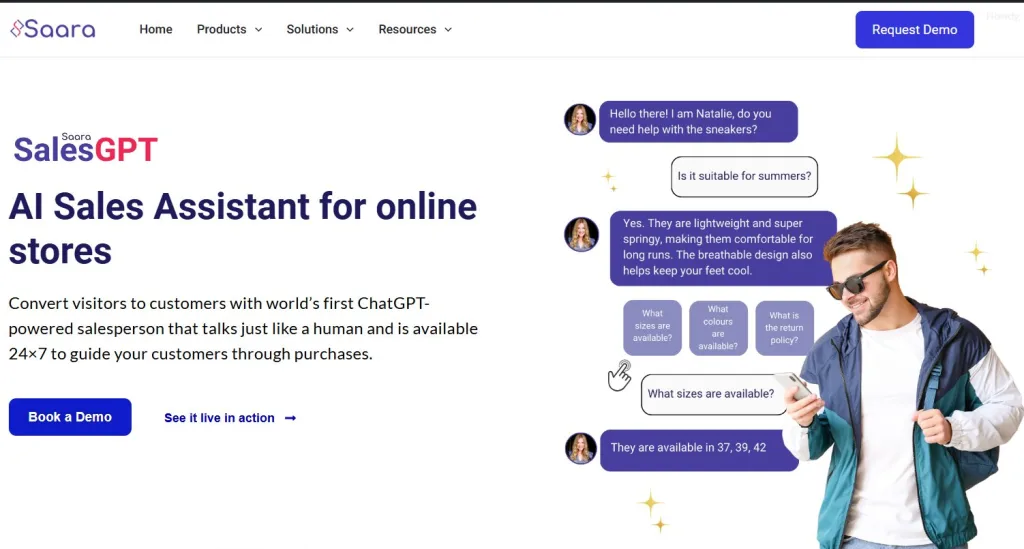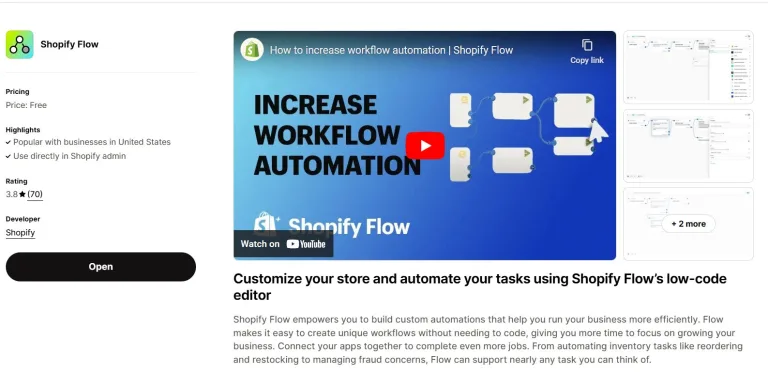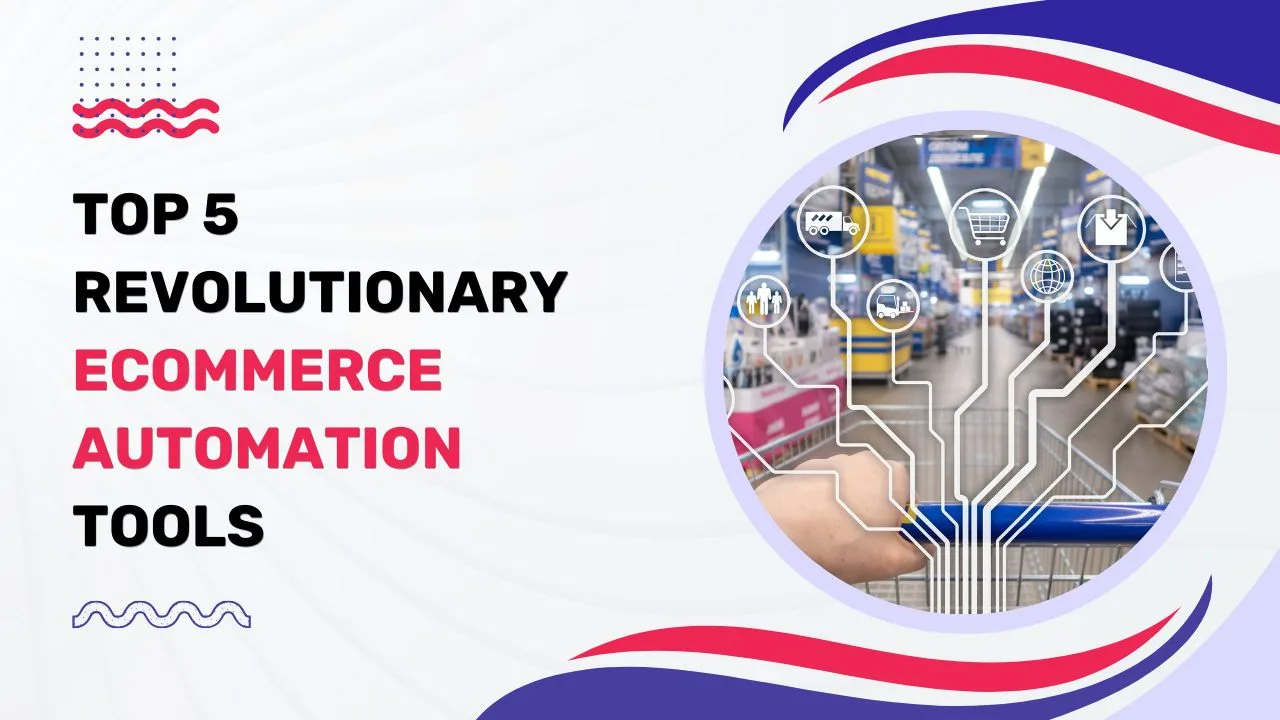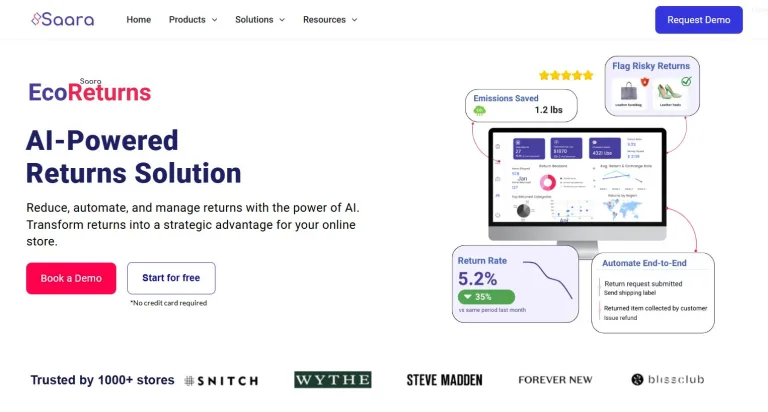The e-commerce landscape is rapidly evolving, and automation is at the forefront of this transformation. With the rise of AI and machine learning, automation tools are becoming more sophisticated, helping online retailers streamline operations, enhance customer experiences, and boost sales. In 2024, several tools stand out for their innovation and effectiveness. Here are the top five eCommerce automation tools you should consider integrating into your business strategy.
1. Klaviyo


Klaviyo is a marketing automation platform specifically designed for e-commerce businesses. It enables personalized email and SMS marketing campaigns, helping to drive customer engagement and increase sales.
Key Features:
- Segmentation and Targeting: Uses customer data to create highly targeted marketing campaigns.
- Automated Email Flows: Automates email sequences for welcome series, abandoned cart reminders, and post-purchase follow-ups.
- Analytics and Reporting: Provides detailed insights into campaign performance and customer behavior.
Benefits:
- Increased customer engagement through personalized marketing.
- Higher conversion rates with automated and targeted campaigns.
- Improved marketing ROI through data-driven strategies.
EcoReturns is an AI & LLM-powered returns management solution featuring end-to-end automation capabilities. Automating returns not only saves time but also helps reduce operational costs by 80%. It focuses on making returns hassle-free for customers with ChatGPT while minimizing returns and the overall environmental impact.
Key Features:
- 100% eCommerce Automation of Returns and Exchanges: Streamlines the return process with automated workflows and real-time tracking.
- Reduces Frauds: Prevents returns fraud by flagging risky customers with its powerful AI engine.
- ChatGPT for CX: ChatGPT guides the customers through the returns and exchange process, making it a smooth experience.
- Advanced Analytics: Provides detailed analytics insights and helps make crucial decisions.
Benefits:
- Reduced returns and operational costs related to returns management.
- Improved customer satisfaction through ChatGPT-powered self-service portal.
- Improved operational efficiency through end-to-end automation
3. SalesGPT


SalesGPT is an eCommerce automation solution that leverages the power of AI to provide personalized shopping experiences. It automates customer interactions and optimizes sales strategies by engaging in upselling, cross-selling, and helping with product discovery and suggestions.
Key Features:
- Personalized Recommendations: Uses AI to analyze customer behavior and provide tailored product recommendations.
- Automated Customer Service: Employs an LLM-based sales assistant to handle customer inquiries, reducing response times and improving satisfaction.
- Analytical Insights: Gathers insights on the conversations SalesGPT has with your shoppers to figure out customer interests, concerns, and more.
Benefits:
- Increased customer engagement and retention.
- Higher conversion rates through personalized experiences.
- Time savings on customer service and support.
- SalesGPT works on websites built on any platform, even the custom-made ones!
4. Zapier


Zapier is a powerful eCommerce automation tool that connects different apps and services, allowing e-commerce businesses to automate workflows across platforms. It supports thousands of apps, making it highly versatile.
Key Features:
- Multi-App Integration: Connects various e-commerce, marketing, and productivity apps.
- Automated Workflows (Zaps): Allows users to create “Zaps” that automate tasks between apps, such as syncing data, updating inventory, and sending notifications.
- User-Friendly Interface: Easy-to-use interface that requires no coding knowledge.
Benefits:
- Streamlined operations through seamless app integrations.
- Time savings by automating repetitive tasks.
- Flexibility to customize workflows according to business needs.
5. Shopify Flow for eCommerce Automation


Shopify Flow is an automation platform designed specifically for Shopify users. It allows businesses to create custom workflows that automate repetitive tasks, saving time and reducing errors.
Key Features:
- Workflow Automation: Automates tasks such as inventory management, order processing, and customer segmentation.
- Custom Triggers and Actions: Enables users to set up triggers and actions tailored to their specific business needs.
- Integration with Shopify Apps: Seamlessly integrates with other Shopify apps to extend functionality.
Benefits:
- Enhanced operational efficiency through automation.
- Greater accuracy in task execution.
- More time for focusing on strategic activities.
E-commerce automation tools are becoming indispensable for businesses seeking to enhance operational efficiency and improve customer experiences. These tools streamline various processes, from personalized marketing and customer service to inventory management and returns processing. By integrating automation into their operations, e-commerce businesses can save time, reduce costs, and make more




